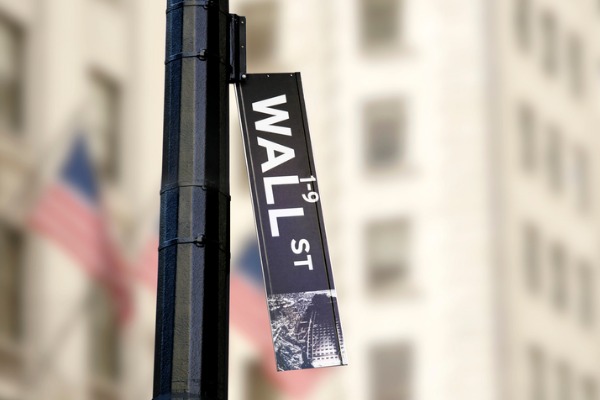US market has nearly doubled since Covid lows - good or bad sign?
There is only one precedent in history for such a rapid doubling of the US stock market.
5th May 2021 10:19
by Tom Bailey from interactive investor
There is only one precedent in history for such a rapid doubling of the US stock market.

It has been a stonking year for the US stock market. The S&P 500 is currently at 4,183 points (at the time of writing). That’s not far off double where it was after the Covid-19 sell-off in March 2020, when the index bottomed out at 2,237 points.
For investors who miraculously bought the bottom of the market last year, that translates into a total return of 83% in US dollar terms. For a UK investor, due to the affect of the strong dollar, that translates into returns of over 55% - lower but impressive, nonetheless.
Where the US market goes from here is anyone’s guess. However, it is not inconceivable that the S&P 500 will gain a few hundred more points this year, reaching double the March 2020 low. Is this a good or bad sign for investors?
- Investing in the US stock market: a beginner’s guide
- Read more about how to invest in the stock market successfully here
According to data from StoneX Group, a US financial services company, the index doubling in such a short period of time is historically unique. As the data below shows, historically stock prices have taken much longer to double from their lows in the ensuing rally – usually several years, if at all.
| Date of market low | Months taken to double from low |
| 01/06/1932 | 3 |
| 28/04/1942 | 36.3 |
| 13/06/1949 | 57.5 |
| 22/10/1957 | No doubling in ensuing rally |
| 26/06/1962 | No doubling in ensuing rally |
| 07/10/1966 | No doubling in ensuing rally |
| 26/05/1970 | No doubling in ensuing rally |
| 03/10/1974 | 70.1 |
| 12/08/1982 | 39.9 |
| 04/12/1987 | No doubling in ensuing rally |
| 11/10/1990 | 60.8 |
| 09/10/2002 | 59.7 |
Source: StoneX Group
Indeed, as the table shows, there is only one precedent in US market history for such a rapid doubling as we may see – during the 1930s Great Depression. Stocks doubled between June and September 1932. However, while stocks doubled quickly, this was followed by perpetual large declines and rebounds which lasted until the Second World War.
The historical parallel is seemingly ominous. Stocks have only been able to recover so quickly in a time of extreme economic uncertainty and market volatility. However, we should keep in mind the limitations of this historical comparison.
First, the Covid-19 sell off and recession is a unique event. The pandemic was an external shock and the resulting recession the result of government action to temporarily close the US economy. Unlike in the Great Depression, the US economy is not stuck in some deep crisis. In theory, we will see a return to strong economic output this year.
On top of that, the policy response to the pandemic and economic fallout was both swift and extensive. The US has been firing both monetary and fiscal policy on all cylinders. While the market rebound is historically unique, so too was the scope and depth of the US policy response.
Crucially, as Vincent Deluard, director of global macro strategy at StoneX points out, earnings for US companies are strong, weakening any comparison with Great Depression era historical comparisons. He says: “About a quarter of S&P 500 index companies have reported earnings and it looks like profits will exceed their pre-Covid peak and double-digit growth is expected for as far as analysts’ eyes can see.”
In total, 76% of reporting companies have beat earnings estimates and earnings have jumped by 50% since the pandemic low. So, it appears we’ve seen a “V-shaped” recovery, rendering Great Depression bull and bear market comparisons largely meaningless.
- Three reasons not to use the Dow Jones index
- US stock market jargon buster
- Check out our award-winning stocks and shares ISA
Deluard, however, is not exactly bullish on US stocks. He argues that perhaps we shouldn’t view the 2020 Covid-19 sell off as a bear market at all. He says: “The Covid bear market was so brief that it should not even be in this list. For all practical matters, the first quarter of 2020 was a blip in the longest bull market and economic expansion in history.” Instead, Dullard argues we are at the end of a long bull market cycle that started during the recovery form the 2008 financial crisis.
These articles are provided for information purposes only. Occasionally, an opinion about whether to buy or sell a specific investment may be provided by third parties. The content is not intended to be a personal recommendation to buy or sell any financial instrument or product, or to adopt any investment strategy as it is not provided based on an assessment of your investing knowledge and experience, your financial situation or your investment objectives. The value of your investments, and the income derived from them, may go down as well as up. You may not get back all the money that you invest. The investments referred to in this article may not be suitable for all investors, and if in doubt, an investor should seek advice from a qualified investment adviser.
Full performance can be found on the company or index summary page on the interactive investor website. Simply click on the company's or index name highlighted in the article.